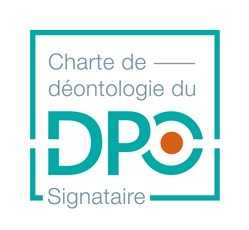Ethical culture in business: an essential asset for lasting success
In an increasingly competitive business world, companies must constantly look for ways to stand out and succeed. Among the strategies that have proven particularly effective, ethical culture in the workplace occupies a prominent place. More and more organizations recognize the importance of establishing a strong ethical culture to achieve their goals and prosper.
Open and transparent communication is necessary to foster employee trust and engagement. Internal communication channels should allow employees to voice ethical concerns and report inappropriate behavior.
To strengthen this ethical culture, start by establishing a solid foundation by clearly communicating the existence and role of your ethics and compliance function within the organization. Make sure every team member is aware of the resources and policies available.
Next, actively engage with different departments or services. Ask for information about their operational processes and encourage them to share their experiences and concerns. This open dialogue not only builds trust, but also helps identify and manage potential risks.
By involving your employees in this process, you create an environment where ethics is not just a policy, but an integrated daily practice. This collaborative approach ensures that the commitment to ethics is shared by all, thus reinforcing the culture of transparency and accountability.
In this article, we will explore the undeniable benefits of an ethical culture in business, the steps necessary to develop it.
The foundations of ethical culture in business
Ethical corporate culture is based on a set of values, standards and practices that guide the behavior of employees and managers. It aims to promote ethical and responsible conduct both internally and externally. By adopting an ethical culture, companies commit to respecting fundamental principles such as integrity, transparency, respect for human rights, social and environmental responsibility, and fairness.
The benefits of an ethical culture in business:
- A positive work environment : A strong ethical culture creates an environment where employees feel valued, respected and safe. This promotes team motivation, engagement and productivity.
- A climate of trust and respect : An ethical company builds relationships based on trust with its employees, business partners and customers. This fosters loyalty, collaboration and cooperation at all levels.
- Competitiveness and innovation : Companies that embed an ethical culture are often more competitive and innovative. They attract top talent, encourage creativity and risk-taking, and foster innovation in all aspects of their business.
- Positive Brand Image : A company that engages in ethical and responsible practices develops a positive reputation among its stakeholders. This builds customer trust, improves its credibility and gives it a significant competitive advantage.
- Talent Retention : Employees are attracted to companies that place a high value on ethics. A strong ethical culture contributes to talent retention, reduces employee turnover, and promotes professional development.
- Contribution to society : Companies with an ethical culture contribute to the well-being of society as a whole. By respecting ethical and regulatory standards, they participate in building a more stable and sustainable economic and social environment.
Steps to developing an ethical culture in business:
Leadership Commitment
Leaders must be the first to embrace and promote an ethical culture. Their exemplary leadership and commitment are essential to inspire employees and create an environment conducive to ethics.
Defining values and standards
It is crucial to clearly define the company’s ethical values and expected standards of behavior. This can be done through drafting an ethical code of conduct and regularly communicating these values to all levels of the organization.
Awareness and training
It is essential to raise awareness among employees about ethical issues and provide them with adequate training . This helps to strengthen their understanding of the company’s ethical values and guide them in their decision-making.
- Transparent Communication : Open and transparent communication is necessary to foster employee trust and engagement. Internal communication channels should allow employees to voice ethical concerns and report inappropriate behavior.
- Managerial Exemplarity : Managers must set an example by consistently applying ethical values and demonstrating integrity in their actions. They must also be prepared to take disciplinary action when ethical violations occur.
- Continuous Assessment and Improvement : An ethical corporate culture requires regular assessment to ensure its effective implementation. Assessment measures may include employee engagement surveys, ethics audits, and ethical compliance assessments.
How can an organization adapt its compliance program to strengthen its ethical culture?
To effectively adapt a compliance program and strengthen an organization’s ethical culture, it is crucial to align the program with the organization’s specific needs and dynamics. Here’s how to do it:
- Leverage Valuable Insights Gather insights from your team, partners, and external experts. This will ensure your compliance strategies are based on practical realities rather than theoretical models.
- Tailor Policies and Procedures Create policies that resonate with the organization’s specific industry, size, and operational challenges. Customization is key—it allows the program to be more applicable and engaging for employees at all levels.
- Foster an Inclusive Environment for Feedback Encourage open communication channels where employees feel comfortable sharing their thoughts on compliance practices. Regular feedback loops can identify areas for improvement and highlight successes that can be replicated across the organization.
- Continuing Education and Training Implement ongoing training sessions that not only educate but also inspire employees to behave ethically. Well-informed employees are more likely to follow and adhere to compliance protocols.
- Evaluate and Adjust Regularly Review the effectiveness of your compliance measures regularly. By regularly evaluating the impact of your policies, you can make adjustments as needed to keep the compliance program relevant and effective.
- Promote Leadership Commitment Ensure that leaders at all levels visibly support and champion ethical practices. When leaders model these behaviors, it underscores the importance of compliance and ethics, embedding them into the organizational culture.
By customizing your compliance program and engaging your entire organization in the process, you create a solid foundation for an ethical culture. This approach not only minimizes risk but also improves your company’s reputation and operational efficiency.
Understanding the relationship between ethics and compliance in an organization?
In any organization, ethics and compliance are interconnected, forming a cohesive framework essential for sustained success.
Ethics: The Moral Compass
Ethics serves as a moral compass that guides the conduct of individuals and the organization as a whole. It comprises a set of values and principles that are voluntarily adopted and go beyond legal obligations. These values shape the culture of the organization, encouraging a mindset centered on integrity, respect, and responsibility.
Compliance: The Rulebook
On the other hand, compliance refers to the structured processes and procedures established to ensure that the organization complies with applicable laws and regulations. It is the mechanism that mitigates risks by imposing legal standards and protecting the organization from potential legal pitfalls.
The synergy between ethics and compliance
While ethics lays the foundation for appropriate behavior through personal conviction and moral values, compliance puts these principles into practice by implementing concrete actions and strategic frameworks. A strong ethical culture often reinforces compliance by fostering an environment where legal adherence becomes second nature.
Why do they matter together?
In practice, organizations thrive when they effectively balance the two. Ethics without compliance can lead to inconsistency, while compliance without ethics can result in a rigid, rules-driven culture devoid of true accountability. Together, they ensure not only the legal operation of the organization, but also the cultivation of a workplace that values principled decision-making.
Understanding the Key Aspects of Anti-Corruption Compliance: Insights from the Sapin II Law
Are you curious about the essential measures involved in combating corruption and ensuring ethical business practices? Explore some of the essential elements that characterize anti-corruption compliance, including those highlighted by the Sapin II Law.
1. Risk assessment
A pillar of effective compliance is conducting thorough risk assessments. This involves identifying and analyzing potential corruption risks within business operations in order to develop tailored strategies that mitigate these risks.
2. Internal policies and procedures
Organizations must establish and enforce comprehensive internal policies. These policies serve as a guide for employees and stakeholders by setting clear expectations regarding ethical conduct and providing procedures for reporting and investigating incidents of corruption.
3. Protection of whistleblowers
Whistleblower protection is crucial. It encourages individuals to report wrongdoing without fear of retaliation. The Sapin II Act calls for strong protections to ensure that whistleblowers feel safe when providing crucial information.
4. Due diligence towards third parties
Implementing rigorous due diligence processes for all third-party partnerships is essential. This step helps ensure that partners also adhere to anti-corruption standards, thereby reducing the risk of indirect involvement in corrupt practices.
5. Regular training and awareness programs
Ongoing education on anti-corruption measures is essential to maintaining compliance. This includes regular training sessions and awareness programs to keep employees informed of the latest ethical requirements and standards.
6. Monitoring and auditing
Continuous monitoring and auditing of business practices helps ensure compliance with anti-corruption laws. This process involves routine checks and balances to quickly detect and address any instances of non-compliance.
7. Disciplinary measures
Clear disciplinary measures for compliance violations are necessary. Establishing consequences for unethical behavior reinforces the importance of upholding anti-corruption standards.
8. Engagement du leadership
Finally, strong leadership commitment is imperative. Leaders must lead by example by demonstrating a sincere commitment to ethical practices and actively supporting compliance initiatives throughout the organization.
By focusing on these key areas, companies can align with the principles established by the Sapin II Law, strengthening their dedication to ethical integrity and anti-corruption efforts.
Creating a Unified Ethical Culture Across Culturally Diverse Entities: What Challenges May Arise?
Building a cohesive ethical culture across an organization operating in multiple countries can be particularly challenging. Each entity may operate within distinct cultural frameworks, leading to varying interpretations of what constitutes ethical behavior. Here’s what to consider:
Cultural Variations
Different countries often have unique cultural norms and values. What is considered ethical in one region may not mean the same thing in another. For example, exchanging gifts may be seen as a positive, relationship-building activity in some cultures, but as bribery in others.
Communication Barriers
With diverse languages and communication styles, misunderstandings can easily arise. Establishing clear, universally understood guidelines for ethical conduct becomes essential but difficult.
Legal Disparities
Each country has its own set of legal standards and compliance requirements. Aligning these varied legal expectations with a single ethical vision can be complex.
Resistance to Change
Individuals or teams may resist adopting new ethical standards, believing that they conflict with their established cultural practices. This resistance can slow the implementation of a unified ethical framework.
Balancing Local Autonomy and Global Coherence
There is a fine line between respecting local practices and imposing a consistent organizational standard. Finding the right balance without appearing to impose foreign values is crucial.
To overcome these challenges, organizations must foster open dialogue, provide culturally sensitive training, and establish clear ethical guidelines that honor both local customs and global norms. In doing so, they can cultivate an ethical culture that inspires trust and consistency at all levels of the organization.
Steps to strengthen ethical culture:
Customize compliance strategies
Tailor your compliance program to your organization’s unique needs and challenges. By doing so, you ensure the program resonates with your specific operating environment and your people.
Review policies and procedures
Update your existing policies and procedures based on the new insights gained. This will ensure they are aligned with current industry standards and address emerging risks.
Promote open communication
Encourage transparent dialogue about compliance and ethics at all levels of the organization. This openness helps build trust and reinforces ethical behavior.
Organize regular training sessions
Implement ongoing training sessions to inform employees of compliance requirements and ethical standards. This not only educates, but also holds your staff accountable for upholding these values.
Monitor and adjust
Continuously monitor the effectiveness of your compliance measures. Be prepared to make adjustments as needed to better align organizational culture and external changes.
By developing a tailored compliance plan and continually improving it through feedback and training, organizations can significantly strengthen their ethical culture, ensuring it becomes a core part of their identity.
In summary
If you want to establish a strong ethical culture within your company, My Data Solution (MDS) is here to support you. As a specialist in data protection and privacy, MDS has the expertise to help you define your company’s ethical values, raise awareness among your employees and implement ethical and responsible practices.
MDS offers customized consulting services tailored to your specific needs. Their team of experts can help you develop an ethical code of conduct, design corporate ethics training programs, and evaluate the effectiveness of your ethical culture.
Ethical culture in business is a key asset for sustainable success in a competitive business environment. It fosters a positive work environment, builds trust, stimulates innovation and contributes to a positive brand image. To develop an ethical culture, it is essential that leaders are fully committed and that steps such as defining values, raising employee awareness and transparent communication are put in place. My Data Solution (MDS) can help you implement a strong ethical culture within your company thanks to their expertise in data protection and privacy. Do not hesitate to contact them to obtain
To effectively adapt an organization’s compliance program and strengthen its ethical culture, it’s essential to leverage internal and external resources. Engage new allies, such as industry experts and compliance consultants, and gather insights from on-the-ground experiences. These elements will provide you with the comprehensive data needed to customize your compliance strategies.





